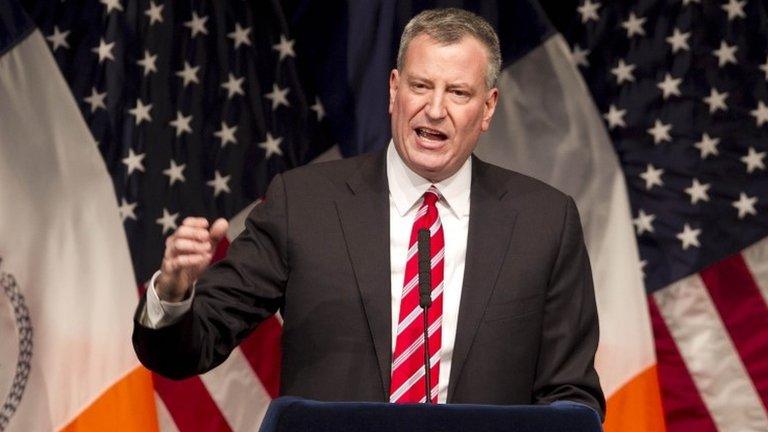De Blasio looks to help 'everyday people' of New York
- Published
- comments
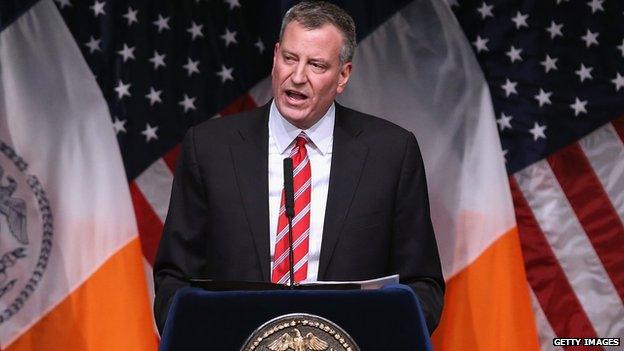
Bill de Blasio's policies are at odds with some fellow Democrats - including plans to raise some taxes
It was LaGuardia Community College, scrubbed up for the day, but well-worn and rather ordinary, that New York City Mayor Bill de Blasio chose for his first State of the City address.
The site was rather different from the glamorous venue picked by outgoing Mayor Michael Bloomberg for his last such speech.
The new mayor's choice is deliberate: if the world's most celebrated city is a heady mixture of grit and glitz, Mr de Blasio is insisting some of the stardust has to rub off on those he calls "everyday people".
Mr de Blasio's rhetoric is uncompromising - he warns that New York faces a crisis of inequality, that while Wall Street has bounced back to new highs after the recession, the ladder to the American dream has been pulled out of sight for many Americans.
In his speech, he rejected the idea that he is sowing the seeds of class war but demanded that the work of all should be valued, not just that of those at the top.
There is policy meat on these political bones - he will insist that property developers build cheaper homes alongside luxury ones.
There's a promise to raise the minimum wage and for a tax rise on the wealthy to pay for preschool education. A pledge too, to allow illegal immigrants to flourish, and not be forced to live in the shadows - something he repeated in Spanish.
He made clear that what he called the "broken policing policy" of stop-and-frisk would end.
But he also admitted that doing the central economic part of all this in a fiscally responsible way would be hard.
The BBC spoke to New Yorkers in the Bronx to find out how they think a shift in policing will impact their lives
His promise to raise taxes puts him head-to-head with Democratic New York Governor Andrew Cuomo, and presumably many of the most powerful people in the city. As President Barack Obama has found out, even fairly modest commitments can be difficult to deliver.
Although New York has been a Democratic city for the last 20 years, it has voted for pragmatic mayors friendly to finance, rather than idealists. Mr de Blasio is trying to break that mould.
There's a lot of interest in what his project might mean, both in the wider US and in the UK, and whether it heralds a political new wave of activism.
The left would argue that his election means that a radical agenda can woo the voters. But the real test is whether he can deliver that for his supporters without unduly dismaying the doubters.
- Published10 February 2014
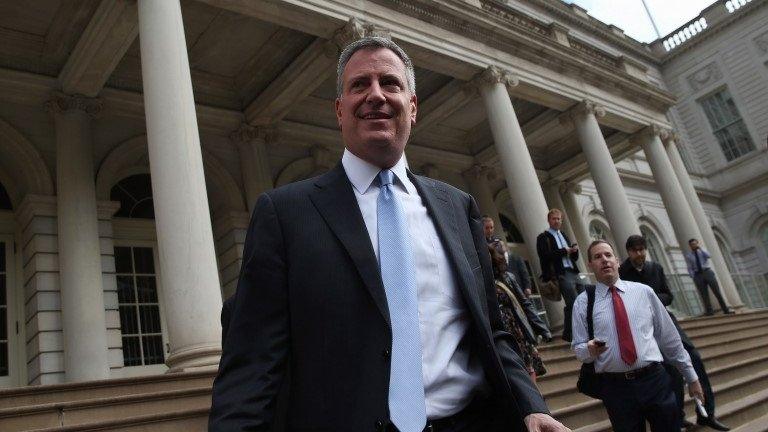
- Published5 February 2014
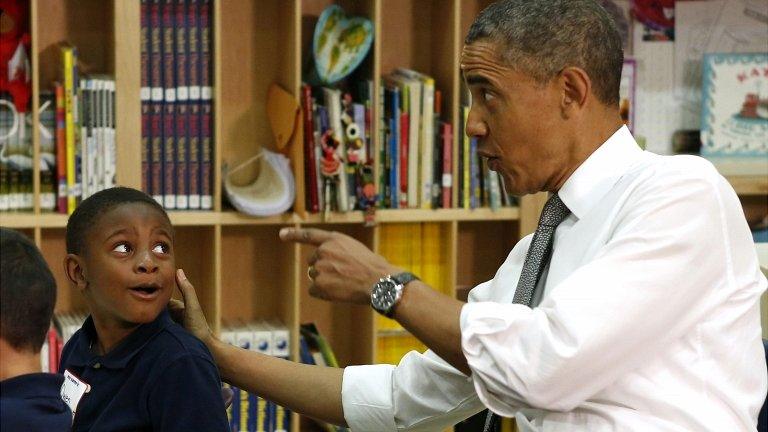
- Published1 January 2014
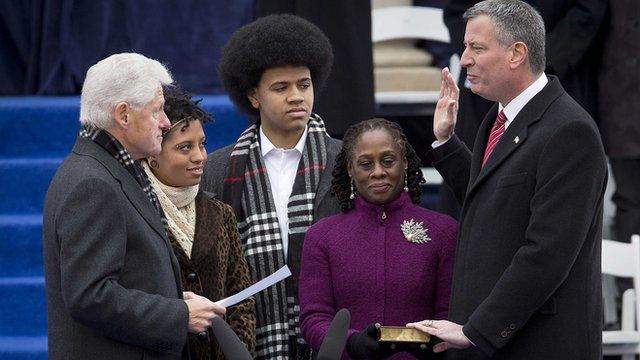
- Published10 February 2014
